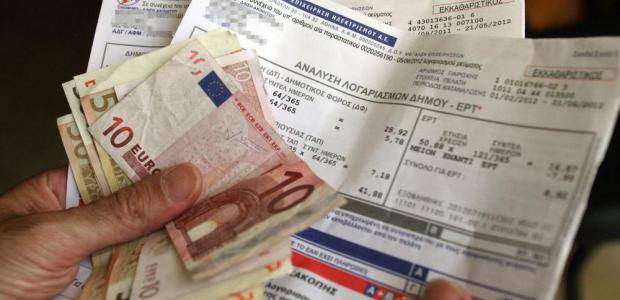The country’s creditor representatives have, in negotiations over the past few days, once again proposed increasing the VAT imposed on electricity bills to 23 percent from 13 percent as a measure to help cover the fiscal gap, according to sources.
The idea had also been tabled last June as a way to swiftly boost tax revenues, but had been rejected by the Greek side.
Last time they had proposed a VAT hike on electricity bills, the lenders reasoned that an additional sum of 570 million euros could be quickly raised, considering the main power utility’s revenues. At the time, the state was collecting 730 million euros in tax revenues from a 13 percent VAT charge on electricity bills, which, the lenders calculated, would be increased to 1.3 billion euros if the VAT rate was increased to 23 percent.
However, the proposal had prompted local concerns over the wider detrimental impact on Greece’s electricity market. This concern remains.
The energy ministry is currently looking for ways to lower electricity tariffs in the second half of the year. A VAT hike from 13 percent to 23 percent would certainly undermine this effort.
The ministry is believed to be pushing for a five percent reduction of electricity costs, whereas the suggested VAT hike would ultimately increase bills by nearly nine percent. This could prove devastating for the electricity market, overall, considering PPC’s current level of unpaid overdue electricity bills owed by consumers, estimated at 2.2 billion euros by the utility.
PPC revenues help support the Greek energy market, including its RES sector and localized power generation at non-interconnected islands, funded by a Public Service Compensation surcharge on power bills.
A VAT increase on electricity would also apply inflationary pressure on a chain of products and services and threaten to flatten consumption and trading activity even more. The level of competitiveness of export-oriented companies would also be affected.
For ordinary households, a 10 percent VAT increase to 23 percent would, for example, increase the VAT amount added to an electricity bill using 1,200 KWh of power over a four-month billing period by 17 euros – from 22 euros to 39 euros. This electricity bill’s total sum would subsequently increase from 192 euros to 209 euros.
Energy ministry officials contacted yesterday by energypress denied knowing anything about a VAT hike proposal on electricity.
The finance ministry is ultimately responsible for the effort being made to cover Greece’s fiscal gap.





